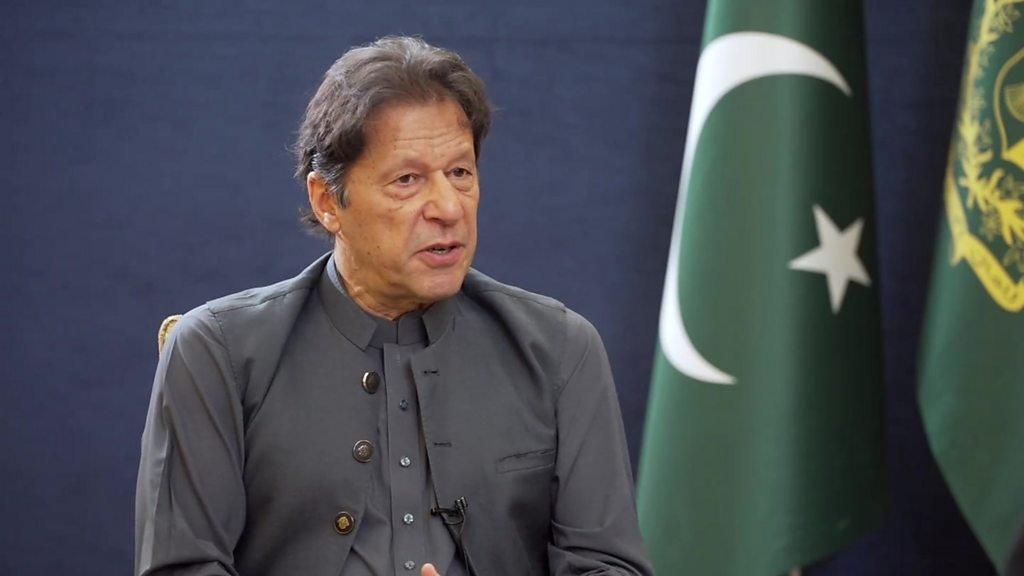Imran Khan: Support for Pakistan PM despite likely defeat
- Published
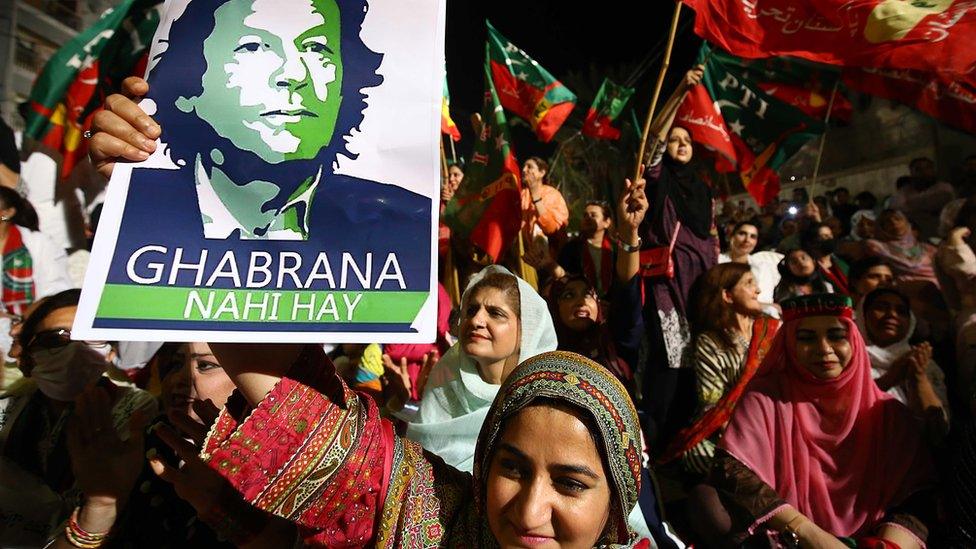
Imran Khan is likely to lose a no-confidence vote which would end his time in office
Pakistan's prime minister Imran Khan is facing a vote of no confidence which is expected to force him from office. But as Secunder Kermani reports, it's unlikely to be the end of his political career.
At his barber shop in a middle-class neighbourhood in Islamabad, 32-year-old Mujahid Ali, dressed in a beige, traditional shalwar kameez, won't be sorry to see Imran Khan ousted from office.
"I haven't enjoyed his time," he says ruefully.
The former cricketer turned politician won in this constituency in 2018. Mujahid voted for him, hoping he could deliver change as a new, third force in Pakistan's politics, which has long been dominated by two rival established political dynasties. But now he blames Mr Khan's Pakistan Tehreek-e-Insaf (PTI) party for the rising cost of living.
"You work all day and earn 500 rupees ($2.70; £2.06)," he tells the BBC. "But now a kilogram of butter costs 500 rupees. Before it was 180."
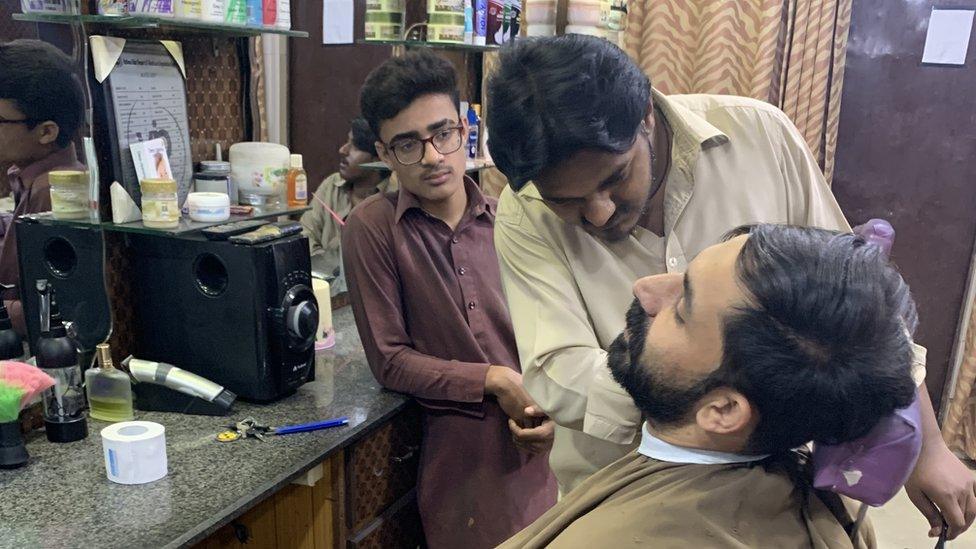
Islamabad barber Mujahid Ali voted for Khan, but won't be sorry to see him go
Khan's likely replacement as prime minister would be Shehbaz Sharif. His brother is Nawaz Sharif, a three-time serving prime minister now convicted on corruption charges which he has always regarded as politically motivated.
Shehbaz too has faced allegations, which he denies, but Mujahid says that doesn't put him off: "They might be corrupt, but at least they help poor people."
Waiting for a haircut is 27-year old Ali Malik, a junior accountant. He too voted for Mr Khan in 2018, but remains supportive of him. "We have to endure this hard time," he says of the economic situation. "Imran Khan has taken a stance and we should stand with him."
Mr Khan has been a staunch campaigner against corruption, and has accused opposition parties of paying off members of parliament to vote against him, an allegation they deny.
The rising cost of living is a complaint of nearly all the voters we speak to at a handful of markets across the constituency. At the barber shop, the owner begins striking his head with palms of his hands in frustration. "The poor of this country have been ruined," he shouts emotionally.
Some, like him, dismiss Mr Khan as "incompetent," but others, such as housewives Iram and Noreen, browsing at a stall selling hairbands, accept his justification that prices have risen across the world following the coronavirus pandemic.
"It's everywhere, not just Pakistan," they say, though another friend accompanying them disagrees.
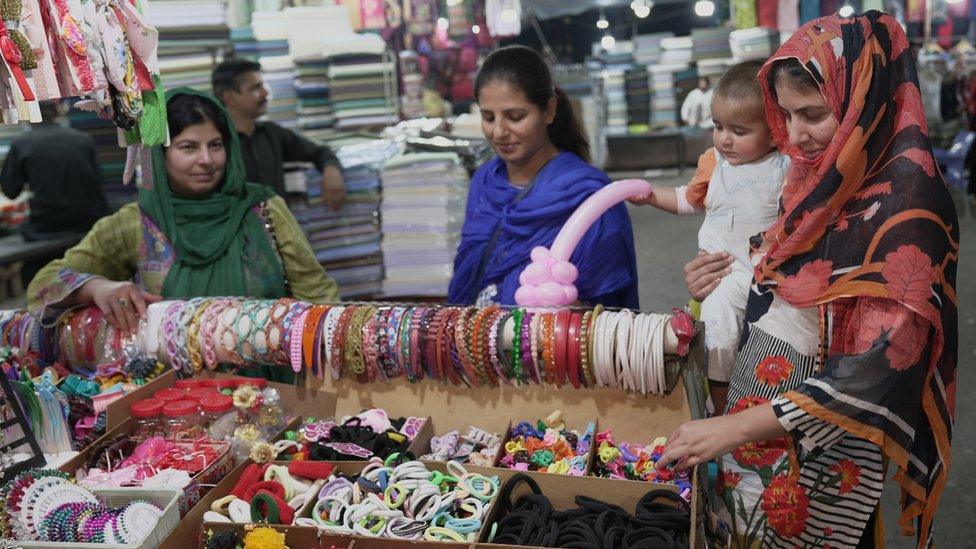
Iram and Noren say the rising cost of living is not the fault of the prime minister
The truth is, price rises have been significantly sharper in Pakistan than in most of its neighbours. Yet however disgruntled many may be with Mr Khan's policies, the move to oust him is not based on a sudden wave of popular sentiment. It's down to elite political manoeuvring.
Mr Khan is widely regarded as having come to power with the help of Pakistan's army, but now observers say they have fallen out. His political opponents are seizing the opportunity to strike whilst he's weak, persuading a number of his coalition partners to defect to them.
Mr Khan has a different, more outlandish explanation for his political troubles. He says he's the victim of an international conspiracy attempting to bring about "regime change" in Pakistan.
He claims US officials warned Pakistani diplomats he would need to be removed from power because of his foreign policy decisions, such as recently visiting Moscow to meet President Vladimir Putin and his previous criticism of America's "War on Terror". Opposition politicians ridicule the allegation, and the US has denied there is any truth to it.
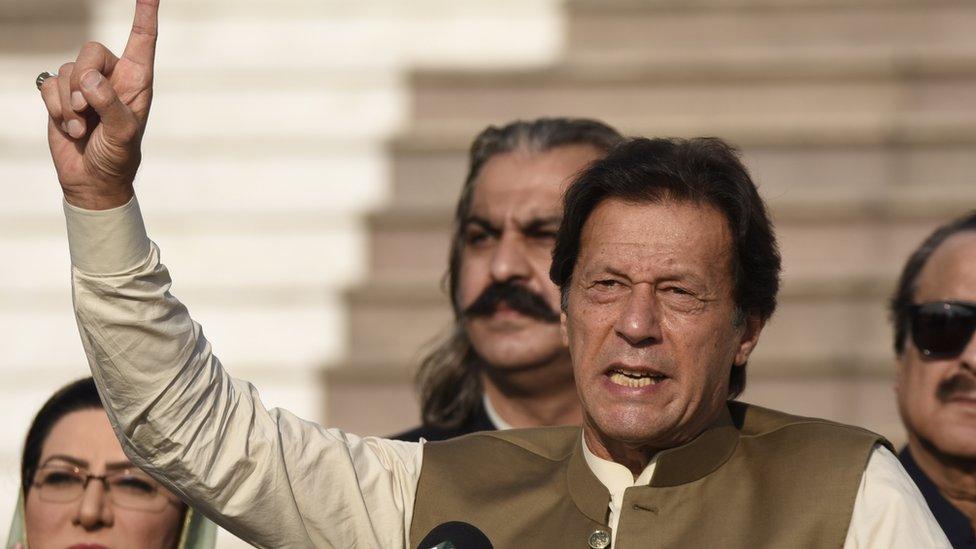
Khan claims he's the victim of an international conspiracy attempting to bring about "regime change" in Pakistan
It appears Mr Khan is attempting build a populist, anti-Western narrative and many of his most ardent followers appear to be buying into it.
Sohail Akhtar, a 25-year-old working in marketing, is sitting at a plastic table in a small open-air restaurant smiling and chatting with a group of friends. All voted for Mr Khan in 2018, and all remain loyal to him. "I wanted Pakistan to be respected on the world stage," he says. "And now that's happened."
"Look out how he has spoken out against Islamophobia," chimes in Mohammad, a civil servant. "Before we used to be like slaves."
When talk turns to the Pakistani military's stance on Mr Khan and whether they're really responsible for his change in fortunes, there's a slight hesitation amongst the group at the restaurant.
Until recently, Imran Khan proudly proclaimed he and the army were on "the same page," and many of his followers view themselves as "patriots" who firmly back the military.
"Well you can't form a government without their support," admits 25-year-old Shafqat, but he remains convinced of the international conspiracy Mr Khan has talked about. He and his friends say they all plan on attending a rally close to parliament on the day of the vote of no confidence.
No Pakistani prime minister has ever completed their full five-year term, and it looks likely Mr Khan won't either.
However, whilst, the poor state of the economy has undoubtedly diminished his popularity, Mr Khan looks set to remain a formidable force in the country's politics.
Related topics
- Published31 March 2022
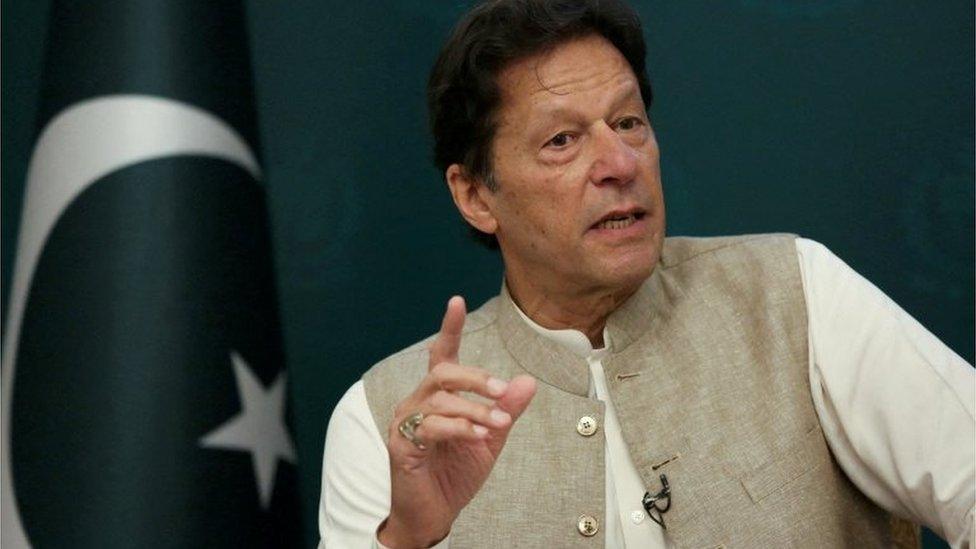
- Published1 February 2024
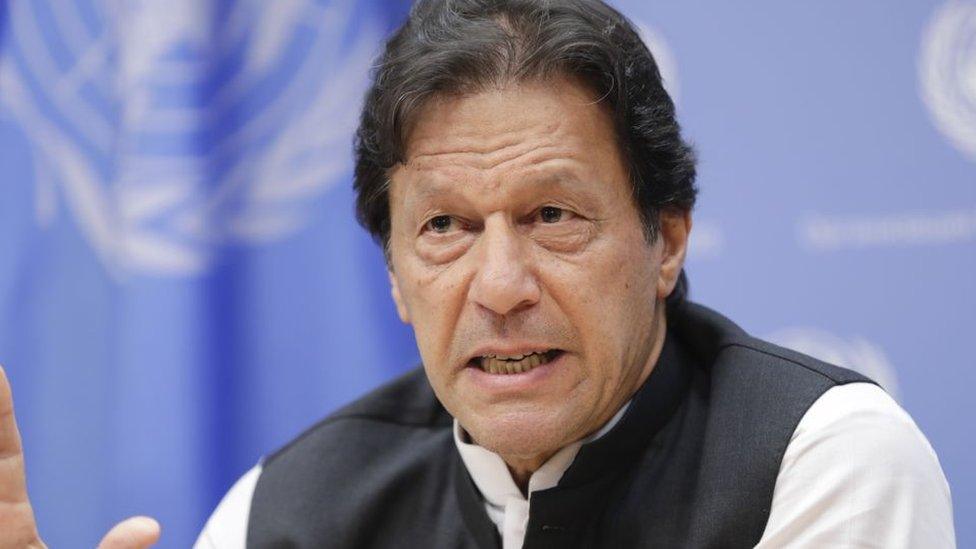
- Published21 September 2021
